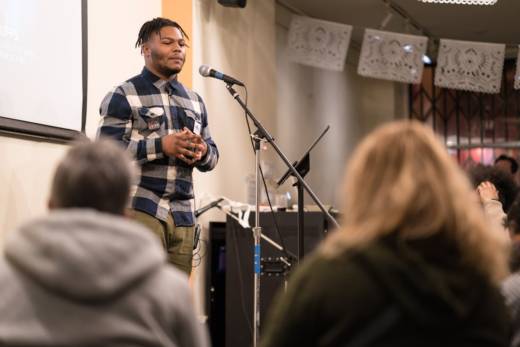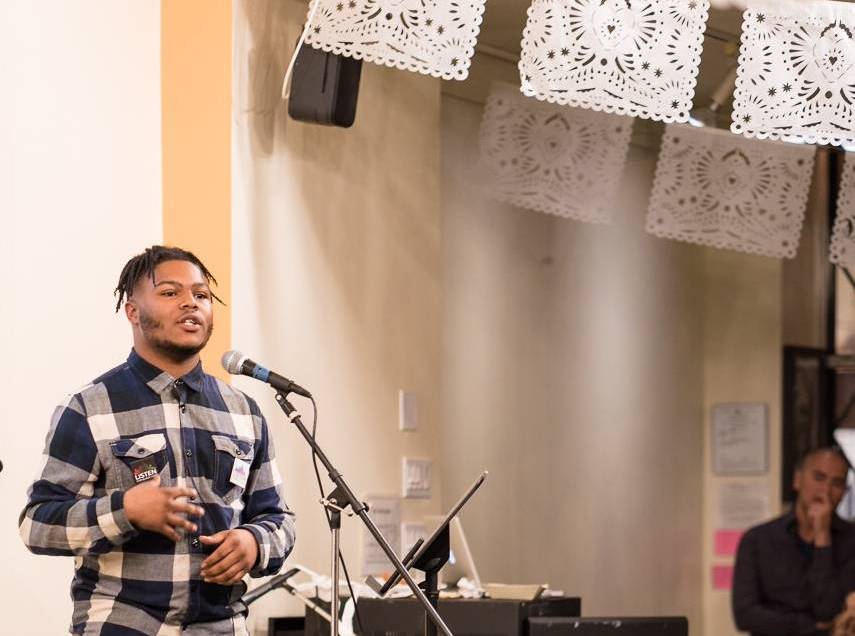Unspoken Sorrow
By Arvaughn Williams
There’s one thing in his life that I can’t seem to comprehend.
And it’s the amount of courage that it takes to be a man.
And Mom, you know I love you and I’m doing the best I can.
But sometimes I want to cry, I'm so grateful to be alive.
‘Cause even when the sky turns black and the ocean runs warm, and cancer finds its cure, there will always be one thing about me that will always be for sure.
And that is just how much I love you even when we fight and go to war.
Sometimes I want to cry, I'm so grateful to be alive.
And I am yours. Yours, yours, yours, yours. Yeah I am yours. Yours, yours, yours, yours.
Listen.
I used to dream and sing about the man that I once knew, or how my favorite color was something he never knew, or how I found warmth in the solstice, or how I sat back and read text messages where he did me the coldest.
I used to dream about the man that put me on his shoulders while we dipped off in the mountains and catch fish on boulders.
I never thought my words would relieve you.
I never thought that you loved me, but in a stupid sense I almost believed you.
I never thought that losing you would bring me and her closer, or you wouldn't live to see my face immortal on the poster.
Wouldn't believe you hurt me the worst way, or the simple fact that when I unlock my phone I remember your birthday.
Or how about the 10th of August, yet minus the pauses, when I blew my candles and my wish was that you would call us.
You never lived to see when the peace came.
As I reframe, I guess my name on your arm was an unbearable ink stain, huh?
It's funny how I major in English, but you were left with the sentence.
You were subject to the prejudice, a predicate instance.
Like you’re here and you be gone in an instant.
Be consistent.
I write because I loved you the most, now it’s resentment.
Wouldn't believe the time that you had showed up in my class, and told me to get the lotion so that I reduce the ash.
Slapped me the five and then I'm like five more minutes, I know I'm in the middle class, but let me finish this sentence.
When I saw you I had hopped out my seat in I ran to you. Couldn't believe my eyes had deceived and expand to you.
You own my heart and you is the man, I’m brand to you and I speak now knowing that I’ll be a man to you.
My only wish is that I latch you. You hold me across your tattoos and when I go to kiss you, your beard kissed me back too.
I hate the fact that I'm 19 and without you.
I hate the fact that when I got ready for prom that it was nothing without you.
I hate the fact that there is no unity, like when I enter puberty I was going through some changes and neglect from you was new to me.
I hate the fact you didn't teach me to shave.
I hate the fact that I had to find out on my own what’s the meaning of brave.
I hate the fact that this love wasn't saved, and normally I don't write to you because missing you is what makes me afraid.
Being alone, I autodidact the way of the trade, and you provide light that cast down rays, still no shade.
I hope that at the end of this, you feel no shame.
I'm commending you for neglect.
It may seem so strange, but I doubt you.
I had to figure it out too.


